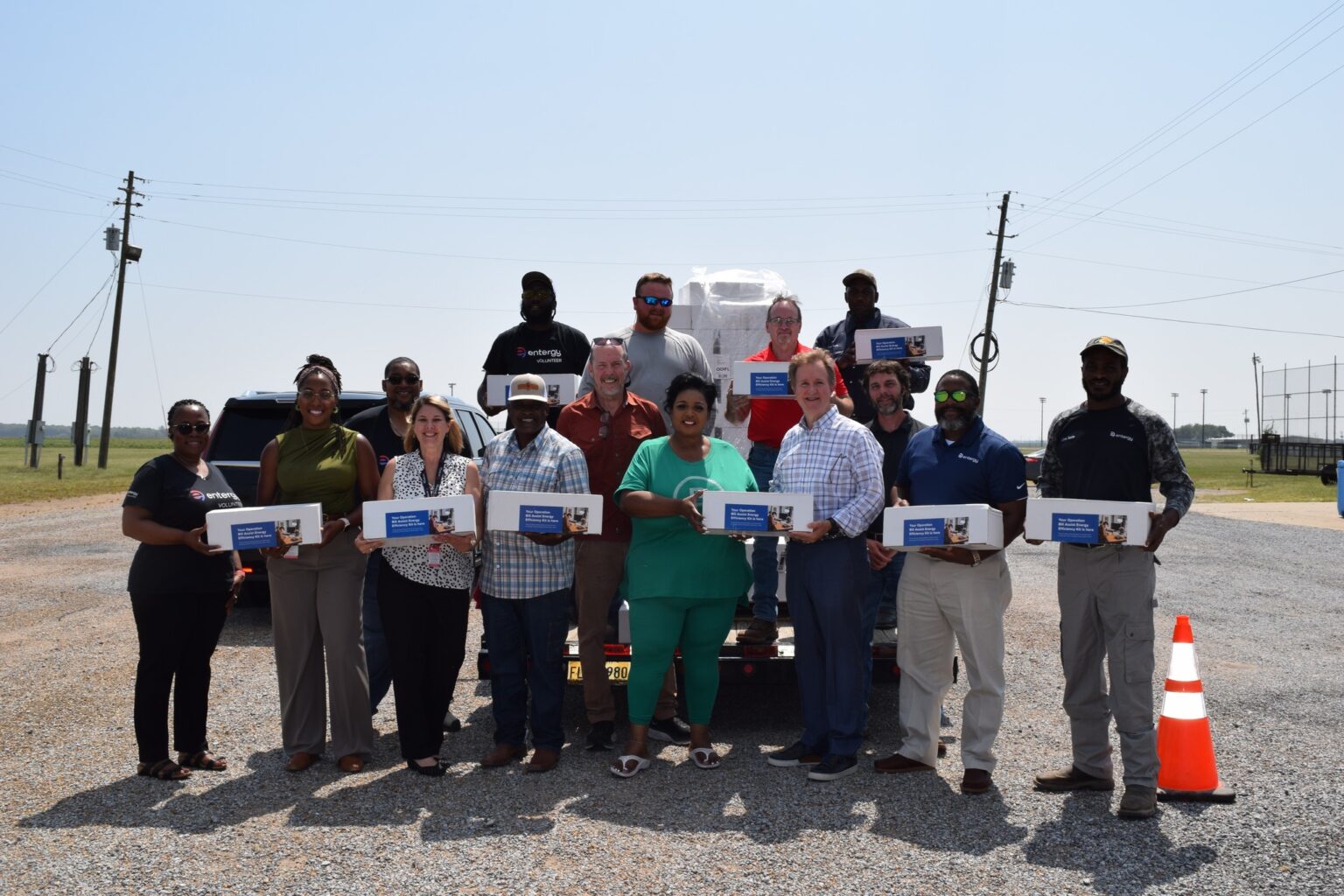Innovative “Boss Lady” understands transportation is just the first step in helping people get and keep good jobs
“What does your transportation look like? Do you have a workforce transportation plan?”
According to Pam Chatman, founder and CEO in the transportation field, it’s a typical ask from major companies considering relocating jobs to Mississippi.
“And we are still not at the particular point of doing it,” she explains. “There are individual workforce transportation initiatives in communities but the resources aren’t receiving enough investment, being pushed or connected.”
Dr. Pam Chatman is a historic figure in Mississippi’s Delta. She spent 25 years as a broadcast journalist in the state, breaking new ground as the first Black woman to lead a local newsroom, she says. As the CEO of Boss Lady Workforce Transportation, a network she established, now she’s making history as a business and philanthropic force.
Every day, her company helps hundreds of people travel to and from their jobs. For big companies and industries, Chatman’s transportation network is helping local workers get jobs that are usually harder to fill and that pay well. Her business is growing, drawing in more partners and commuters because her network of services go the extra mile to ensure workers can arrive to work stress free.
Launched in 2018, Chatman’s rural transportation network began as a partnership with Federal Express and Delta Bus Lines to connect workers in Clarksdale, Mississippi, to FedEx’s major local hub in Memphis, Tennessee.
With seed funding from the Foundation for the Mid South, the company has since evolved into a full-service transportation network in Arkansas and Mississippi offering families transportation to work, school and health care services.
“Boss Lady” also includes a big focus on helping families in need. Chatman’s recent initiative called Boss Giving, which started last March, provides food and necessary items to women and children who struggle affording food and face other financial obstacles.
Recently, she gifted over $100,000 worth of household items from Amazon to the YWCA Greater Memphis Women Crisis Center.
“Our investment is driven by our foundation’s commitment to ending the cycle of poverty that passes from one generation to the next and to increasing financial security for families,” said Greg Johnson, president and CEO of the Foundation for the Mid South. “Boss Lady’s services help prepare people for the workforce, offer job training, teach financial skills, and improve access to transportation, all of which support people in finding and keeping good jobs.”
Boss Lady now also operates in more than 10 counties across the Delta region. She counts two Fortune 500 companies as partners. Additionally, it provides training, sustainable salaries, healthcare, and college tuition assistance alongside free transportation.
“Boss Giving has always been driven by a mission to empower and uplift communities,” she said. “This donation is a testament to our commitment to making a positive impact on people’s lives.”
Healing the Rural Transportation Divide
In small-town Mississippi, wages, jobs and other economic opportunities often suffer because of unmet local transportation needs. Limited public transportation, including limited bus routes, leave carless families few means to get around compared to city residents.
The difference in transportation between cities and rural areas means that people with lower incomes, older adults, and those with disabilities often face longer travel times and higher costs. Although there’s a wide need for better transportation options in rural areas, it’s tough to find solutions.
Federal funding for buses for example – a main mode of public transportation in rural areas – has dropped dramatically over a generation. Still, even when public dollars are available it’s difficult to find the sweet spot of carrying the greatest number of people to wherever they need to go.
At the same, studies show that commute times play an outsized role in helping people escape poverty and energizing local economies. A 2020 analysis from the American Transportation Association reported that every one dollar invested in transit yields $4 in returns and nearly 90 percent is a direct shot in the local economy’s arm.
In fact, Boss Lady was born out of an initial hiring event connecting FedEx Grounds and FedEx Express to local Mississippi workers. The event was expected to attract about 100 people.
Nearly six times that number of people attended and over 1,000 applicants attended a second job fair held five days later.
“At this point, the Governor of Mississippi sent his state team to see why the applicants wanted to work with us,” she says.
Powering Homegrown Choices
Chatman’s success in placing workers into hard-to-fill jobs across the region comes from her deep understanding of the communities she operates inside. Raised in Mississippi’s Delta, she saw first-hand how the lack of public transportation forced families to pay high prices for short trips.
At the heart of her business is a crucial idea: transportation is just the first step in helping people get and keep good jobs. Her wrap-around services go beyond just getting people to work; they include childcare, food assistance, and help with bills, allowing workers to show up at their best everyday.
“You need to really know your people. It’s not enough to just give them a job. The point of transportation should be to help them reach their destination without stress,” Chatman explains. “We provide these comprehensive services so they can head to work with a smile.”
Boss Lady’s approach is based on a valuable lesson that is often overlooked in rural areas: local solutions to transportation problems tend to work best. Research and advocacy in the field support a grassroots approach to developing travel options for small towns and cities.
“When I see people from different rural backgrounds getting access to jobs that pay well enough to support their families, it’s one of my greatest achievements. I feel truly grateful and humble,” Chatman shares.


